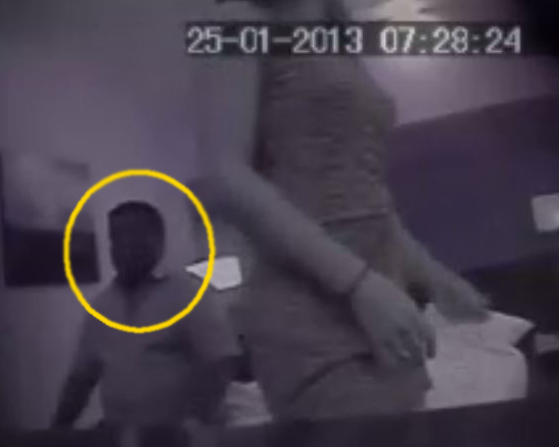The sub-committee formed by the Judicial Service Commission (JSC) to investigate the alleged sex-tape scandal of Supreme Court Judge Ali Hameed has again requested for the suspension of the judge after his refusal to cooperate with the investigation.
“We have sent the request to the JSC to suspend Ali Hameed after the members of the committee found the need to suspend him. We don’t know whether commission would do it or not,” a member of the committee was quoted saying in the local media.
Speaking to Minivan News, a JSC member confirmed that a request had been received to the commission but had not yet made a formal decision regarding the request.
Local newspaper Haveeru has reported that the committee’s request for suspension of the judge was also due to challenges facing the commission – from both the JSC and the Supreme Court – due to Hameed remaining as sitting judge.
Furthermore, local media claimed that Judge Hameed had turned down requests made by the commission to come in for questioning.
Previous call for suspension
Last July, a similar call by the same committee to suspend the disgraced judge was disregarded by the full commission, who questioned the committee’s basis for such a request.
Judge Hameed was able to survive the committee’s attempt to suspend him after four JSC members voted against the recommendation.
The four members included President Mohamed Waheed’s Attorney General Azima Shukoor and his representee Latheefa Gasim – a member of the committee who supported the suspension in committee before later changing her mind.
The other dissenting members were then-parliament’s representative to the commission, resort tycoon and MP Gasim Ibrahim – who later lost his seat at the JSC following his decision to contest the 2013 presidential elections and then-Chair of the Civil Service Commission, Mohamed Fahmy Hassan. Fahmy had been dismissed by parliament in a late 2012 no-confidence motion over allegations of sexual harassment, before being reinstated by the Supreme Court in March 2013.
All four members defending Hameed said that there was “lack of sufficient evidence” to suspend him.
Police Investigation
Earlier this December, local media reported that police had sent a letter to the JSC in which it claimed the sex-tape probe had been stalled due to Criminal Court’s failure to provide key search warrants central to ascertaining Judge Hameed’s depiction in the videos.
The police had allegedly sought two warrants, one being an authorisation from the court allowing police to take a facial photograph of Judge Hameed for comparative analysis, and the second being a search warrant of Hameed’s residence.
Neither the police nor the JSC have confirmed the existence of this letter, though the police have publicly noted similar difficulties in its investigation without mentioning warrant requests.
Superintendent Abdulla Nawaz told media earlier this month that the police had been awaiting some key information from abroad regarding the case.
“We believe once we get this information [from abroad], more doors will be opened and more clues to the case will be revealed, to enhance our investigations,” Nawaz said at the time.
In sum, Nawaz admitted that efforts had not been fruitful in determining the participants, let alone whether it was Hameed seen fornicating with multiple foreign women inside the hotel room.
The sex-tape

Spy-cam footage allegedly depicting the Supreme Court Judge indulging in different sexual acts with multiple foreign women surfaced on local media last July.
In one such video, time-stamped January 24 2013, showed the judge fraternising with a topless woman with an eastern European accent. At one point the figure alleged to be the judge – who was only wearing a white underwear – leans into the camera, making his face clearly visible.
Afterwards, the woman repeatedly encourages the man to drink wine from a mini-bar. “If I drink that I will be caught. I don’t want to be caught,” the man insists, refusing.
The case rose to prominence once more after the Supreme Court’s decision to annul the first round of the presidential elections in October.
Images and symbols depicting scenes from the sex-tape formed a prominent part of protests against the court’s repeated interference in the election.
The videos appeared shortly after a film – also involving Judge Hameed – began circulating on social media in which the Supreme Court Judge appeared to be discussing political influence in the judiciary with a local businessman.
The appearance of the videos also coincided with the arrest and release of Ahmed Faiz – a council member of former President Dr Mohamed Waheed’s Gaumee Ihthihaad Party and the then-project advisor at the Housing Ministry – while he was allegedly trying to sell a sex-tape of the judge.
As of yet, despite public circulation of the videos and widespread media coverage on the scandal, Judge Ali Hameed still continues to sit in the Supreme Court.
He had been one of the four judges who formed the majority ruling in the Supreme Court’s decision to annul the initial first round of the 2013 presidential election as well as the ruling that unseated two opposition MPs over a controversial case of undecreed debt.
Likes (1)Dislikes
(1)Dislikes (0)
(0) 